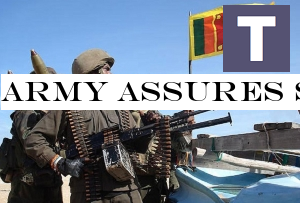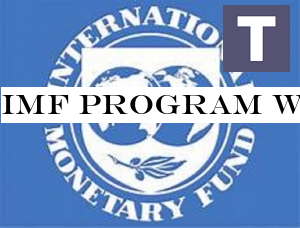Music
Trailers
DailyVideos
India
Pakistan
Afghanistan
Bangladesh
Srilanka
Nepal
Thailand
StockMarket
Business
Technology
Startup
Trending Videos
Coupons
Football
Search
Download App in Playstore
Download App
Best Collections
Srilanka

During the year upto May 10, 2019 the Sri Lanka rupee appreciated against the US dollar(4.1percent).Given the cross currency exchange rate movements, the Sri Lanka rupee appreciated against the pound sterling (1.5percent), Japanese yen(3.7percent),the euro(6.0percent)and the Indian rupee(4.2percent)during this period. Broad money (M2b) expanded by 9.8 %, on a year-on-year basis, in March 2019.
- Details
- Category: Srilanka
Read more: Rupee maintains appreciating trend
Write comment (96 Comments)
In the wake of reported violence in some areas, the Commander of the Army Lieutenant General Mahesh Senanayake in a hard-hitting statement announces that the armed forces would not hesitate to use minimum or maximum force to stem any violence.
Here is the full text of his speech;
&After incidents occurred yesterday in the North Western Province especially starting from Chilaw went up to Kuliyapitiya, Hettipola and in that area, we had to impose curfew in the course of last evening, dark hours. There had been incidents where some youth were involved in damaging and destroying properties. So, I as Army Commander request here and the same time warn anyone who has planned to destroy or dishonor the orders given by the government or the Armed Forces, that we will take stern action, I say again we will take stern action to apprehend, arrest and even to fire and use minimum or maximum powers are given under emergency.
- Details
- Category: Srilanka
Read more: Army assures stern action against troublemakers
Write comment (98 Comments)
Showers or thundershowers will occur at several places in Western, Central, North-western and Sabaragamuwa provinces and in Galle and Matara districts. Showers or thundershowers will occur at several places in Uva, Eastern and North central provinces and in Hambantota district after 2.00 p.m. Fairly heavy falls above 75 mm can be expected at some places in Western and Sabaragamuwa provinces and in Galle and Matara districts. There may be temporary localized strong winds during thundershowers. General public is kindly requested to take adequate precautions to minimize damages caused by lightning activity.
- Details
- Category: Srilanka
Read more: Showers will occur at several places
Write comment (93 Comments)
The new Counter-Terrorism Bill proposes timely and stringent laws to tackle global terrorism unlike the Prevention of Terrorism (Temporary Provisions) Act of 1979. Addressing the media, Leader of the House and Minister Lakshman Kiriella said the new Counter-Terrorism Bill proposes the death penalty for the offence of terrorism if such an act caused any others deaths.
- Details
- Category: Srilanka
Read more: Death penalty for terrorism
Write comment (93 Comments)
ECONOMYNEXT - The International Monetary Fund has resumed and extended a program with Sri Lanka giving 164.1 million US dollars to the central bank, which has to maintain a soft-peg with the US dollar to build more forex reserves. IMF suspended its program with Sri Lanka after the central bank missed its forex reserve target, by printing money to push down rates through two liquidity shocks as the economy recovered in early 2018.The ensuing monetary instability has since undermined economic output."The Sri Lankan authorities have successfully brought the program back on track, despite important setbacks, by advancing fiscal consolidation through a well-targeted 2019 budget, rebuilding reserves, while maintaining a prudent monetary policy under greater exchange rate flexibility, and reviving structural reforms," IMF's Deputy Managing Director and Acting Chair of the Board Mitsuhiro Furusawa said in a statement."Sustaining policy discipline remains critical to strengthen resilience, given still sizable public debt and low external buffers, and support strong and inclusive growth." In 2018 the currency depreciation bloated national debt and put the brakes on revenues available to repay foreign debt by despite a nominal growth. "The Central Bank of Sri Lanka should continue to pursue a prudent and data-dependent monetary policy," Furusawa said."The amendments to the central bank law will be a major step in the transition to flexible inflation targeting. Efforts to build reserves should be sustained, under greater exchange rate flexibility, to protect the economy against shocks." Analysts have pointed out that Sri Lanka's balance of payments problems primarily come from the central bank printing money to keep rates down, while trying to target the exchange rate (deploying convertibility undertakings) which is the same reason that the Bretton Woods soft-peg system and European Exchange rate mechanism also collapsed.Sri Lanka is operating a de facto inflation targeting regime (cutting rates with printed money when inflation falls) which worsens policy contradictions in the soft-peg, leading to balance of pyaments poblems. There are fears that a planned 'flexible inflation targeting' also involves a peg and a policy rate maintained by printed money given the frequent mentions of the need for 'reserve buffers'.The IMF has also given tools for Sri Lanka to calculate an output gap, implicitly giving the idea that policy rates can be cut when growth is lower than the number derived by econometrics, which is incompatible with maintaining a pegged exchange rate regime.In a peg rates can only fall if domestic credit growth slows. The full statement is reproduced below:IMF Executive Board Completes the Fifth Review under Sri LankaExtended Arrangement under the Extended Fund Facility; Grants Waivers of Nonobservance of Performance Criteria and Approves US$ 164.1 million disbursement and Extension of the Arrangement• Sri Lanka successfully brought the EFF-supported program back on track. • Sustaining policy discipline remains critical to strengthen resilience and support strong and inclusive growth. • Extension of EFF arrangement by one additional year will provide a policy anchor to complete Sri Lankaeconomic reform agenda.On May 13, 2019, the Executive Board of the International Monetary Fund (IMF) completed the Fifth Review of Sri Lankaeconomic performance under the program supported by an extended arrangement under the Extended Fund Facility (EFF). [1] Completion of this review, upon the granting of waivers of nonobservance for the end December 2018 performance criteria on the primary balance and net official international reserves, makes available SDR 118.5 million (about US$ 164.1 million), bringing total disbursements under the arrangement to SDR 833.73 million (about US$ 1.155 billion). The Executive Board also approved an extension of the arrangement by one additional year, until June 2, 2020, with rephasing of remaining disbursements.Sri Lankathree-year extended arrangement was approved on June 3, 2016, in the amount of about SDR 1.1 billion (US$1.5 billion, or 185 percent of quota in the IMF at the time of approval of the arrangement. See Press Release No. 16/262 ). Following the Executive Boarddiscussion of the review, Mr. Mitsuhiro Furusawa, Deputy Managing Director and Acting Chair of the Board, issued the following statement: &We join Executive Directors in extending our condolences to the government and people of Sri Lanka for the loss of life and suffering caused by the recent terror attacks. &The Sri Lankan authorities have successfully brought the program back on track, despite important setbacks, by advancing fiscal consolidation through a well-targeted 2019 budget, rebuilding reserves, while maintaining a prudent monetary policy under greater exchange rate flexibility, and reviving structural reforms. Sustaining policy discipline remains critical to strengthen resilience, given still sizable public debt and low external buffers, and support strong and inclusive growth. &Sustained revenue mobilization is needed to place public debt on a downward path, while making space for critical public investment and an expansion of the social safety net under well-defined selection criteria. Strengthening the selection and appraisal process of large-scale investment projects and assessing their fiscal affordability is critical, given Sri Lankahigh public debt. Stronger fiscal rules and a medium-term debt management strategy will support medium-term fiscal consolidation and debt reduction efforts.
- Details
- Category: Srilanka
Read more: IMF program with Sri Lanka resumes, giving 164.1 million US dollars
Write comment (97 Comments)
Targeting terrorists and their networks brings only temporary success—but the long-term strategy needs to focus on discrediting the ideologies that attract attackers. The Jjihadi bombings in Sri Lanka on Easter Sunday are the latest reminder that terrorism is not driven by deprivation or ignorance. As with the 2016 cafe attack on foreigners in Dhaka, Bangladesh, the slaughter of churchgoers and hotel guests in Sri Lanka was carried out by educated Islamists from wealthy families. Two of the eight Sri Lankan suicide bombers were sons of one of the countrywealthiest businessmen. Several of the attackers had the means to study abroad.
One reason why these attacks keep taking place is that the U.S.-led global war on terrorism has failed—and that is because it has focused on eliminating terrorists and their networks, not on defeating the Jihadi ideology that inspires suicide attacks around the world. The bombings in a place as unlikely as Sri Lanka—a country with no history of radical Islamist terrorism—underscore how far militaristic theology can spread and why the world needs to tackle it at its roots.
When it comes to radical Islamist terrorism, the ideological roots can most often be traced back to Wahhabism, an extreme form of Sunni Islam promoted by Saudi Arabia. Wahhabism legitimizes violent Jihad with its call for a war on &infidels.& According to the Saudi Muslim scholar Ali al-Ahmed, it advocates that nonbelievers are &to be hated, to be persecuted, even killed.& Such is the power of this insidious ideology that the two sons of a Sri Lankan spice tycoon, Mohammad Yusuf Ibrahim, chose martyrdom over a continued life of comfort and luxury, including living in a palatial villa and travelling in expensive chauffeured cars.
Suicide killings
Make no mistake: Wahhabismphony idea of a paradise full of sensual delights for martyrs foments suicide killings. The so-called benefits it espouses make a would-be attacker believe that he will be delivered 72 virgins in heaven. (This claim finds no mention in the Quran but is found in a supposed ninth-century hadith—a record of the traditions or sayings of the Prophet Muhammad.)
Founded in the 18th Century by the cleric Muhammad ibn Abd al-Wahhab, Wahhabism remained a fringe form of Islam until the dawn of the oil price boom in the 1970s. Flush with funds, Saudi Arabia has since spent $200 billion funding Wahhabi madrassas (religious seminaries), mosques, clerics, and books to promote its form of Islam and gain geopolitical influence. But the oil price boom was not the only factor contributing to Wahhabismrapid spread. The export of this jihad-fostering ideology was also promoted by the United States and its allies to stem, for example, the threat from Soviet communism: The CIA, according to the author Robert F. Kennedy Jr. (the nephew of former U.S. President John F. Kennedy), &nurtured violent Jihadism as a Cold War weapon.&
Gradually, Wahhabism has been snuffing out the diverse, more liberal Islamic traditions in non-Arab countries with large Muslim communities and created a toxic environment in which extremism can thrive. Pluralistic interpretations of Islam are being stifled so that this hard-line strain makes inroads. By promoting militant Islamic fundamentalism, Saudi Arabia and its ideological partners have in effect promoted modern Islamist terrorism. The sponsorship of extremism has fostered hatred, misogyny, and violence, and it has deepened differences between Sunnis and Shiites. And that divide, in turn, has roiled regional geopolitics and incited anti-Shiite attacks in predominantly Sunni countries like Saudi Arabia and Pakistan.
U.S. counterterrorism policy
Against this background, it is past time for the global war on terrorism to be reoriented. U.S. counterterrorism policy should focus not merely on foes like the Islamic State and al Qaeda but also on Arab monarch friends pushing a Jihadi agenda by, among other means, turning a blind eye to charities in their countries that fund Islamist militancy around the world. Despite steps taken by Saudi Arabia and other countries in the region to disrupt terrorist financing, Persian Gulf-based charities—as the U.S. State Departmentannual country reports on terrorism acknowledge—continue to play a role in the sponsorship of terrorist groups.
Gradually, Wahhabism has been snuffing out the diverse, more liberal Islamic traditions in non-Arab countries with large Muslim communities and created a toxic environment in which extremism can thrive. Pluralistic interpretations of Islam are being stifled so that this hard-line strain makes inroads. By promoting militant Islamic fundamentalism, Saudi Arabia and its ideological partners have in effect promoted modern Islamist terrorism. The sponsorship of extremism has fostered hatred, misogyny, and violence, and it has deepened differences between Sunnis and Shiites. And that divide, in turn, has roiled regional geopolitics and incited anti-Shiite attacks in predominantly Sunni countries like Saudi Arabia and Pakistan.
Against this background, it is past time for the global war on terrorism to be reoriented. U.S. counterterrorism policy should focus not merely on foes like the Islamic State and al Qaeda but also on Arab monarch friends pushing a Jihadi agenda by, among other means, turning a blind eye to charities in their countries that fund Islamist militancy around the world. Despite steps taken by Saudi Arabia and other countries in the region to disrupt terrorist financing, Persian Gulf-based charities—as the U.S. State Departmentannual country reports on terrorism acknowledge—continue to play a role in the sponsorship of terrorist groups.
Jihad-financing countries
Saudi Arabia—perhaps the largest sponsor of radical Islam and one of the worldmost repressive states—has faced little international pressure even on human rights. In fact, the total ban on Iranian oil exports ordered by U.S. President Donald Trumpadministration from May 3 will financially reward Saudi Arabia and the other Jihad-financing countries. Iran, to be sure, is a destabilizing regional force. But it is certainly not &the worldleading state sponsor of terrorism,& as the Trump administration calls it. The largest acts of international terrorism—including the recent Sri Lanka bombings, the 9/11 attacks on New York and Washington, D.C., and the 2008 Mumbai siege—were carried out by brutal Sunni organizations with connections to Saudi-sponsored Wahhabism but none to Iran. Indeed, all major Islamist terrorist organizations, despite their differing Jihadi philosophies and goals, draw their ideological sustenance from Wahhabism, the source of modern Sunni jihad. - Foreign Policy
- Details
- Category: Srilanka
Read more: How to win Global War on Terrorism
Write comment (92 Comments)Page 370 of 392

 19
19







